What is the best bok choy substitute? This article will supply you with 12 best alternatives to bok choy.
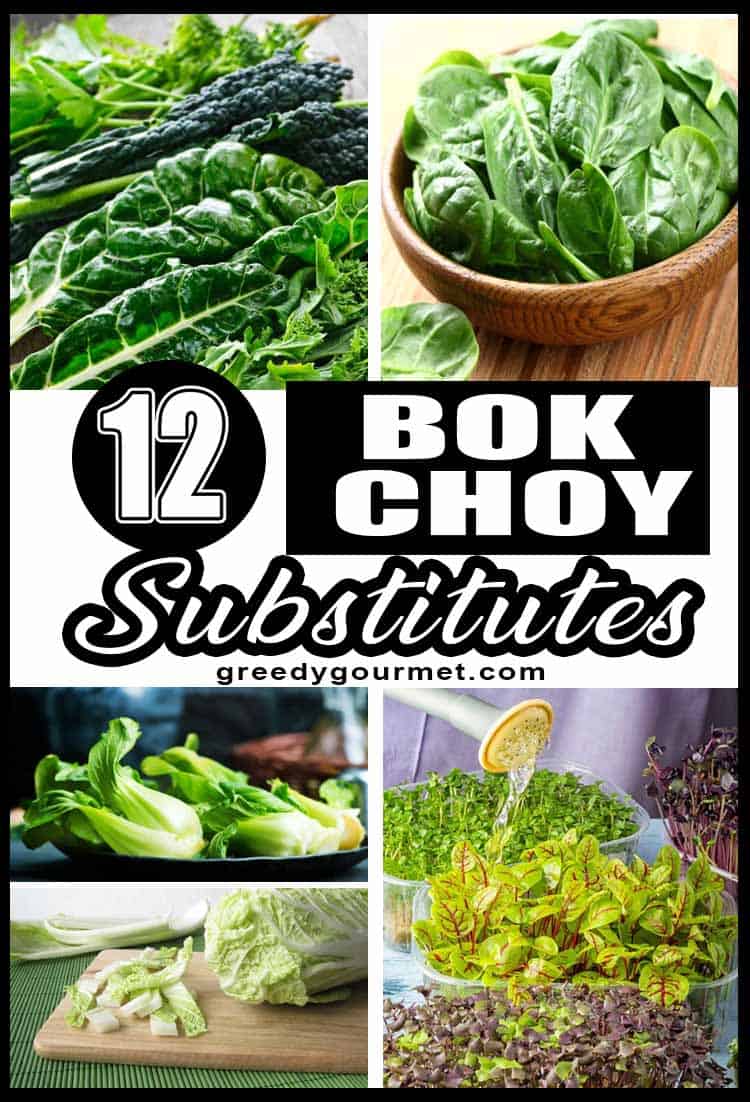
bok choy substitute
Sometimes, it's difficult to source bok choy, however it's easy to find the perfect bok choy substitute. Bok choy is an ingredient you'd typically find predominantly in Asian cuisines. For instance, you would easily find bok choy in a Chinese stir fry recipe along with other bok choy substitutes.
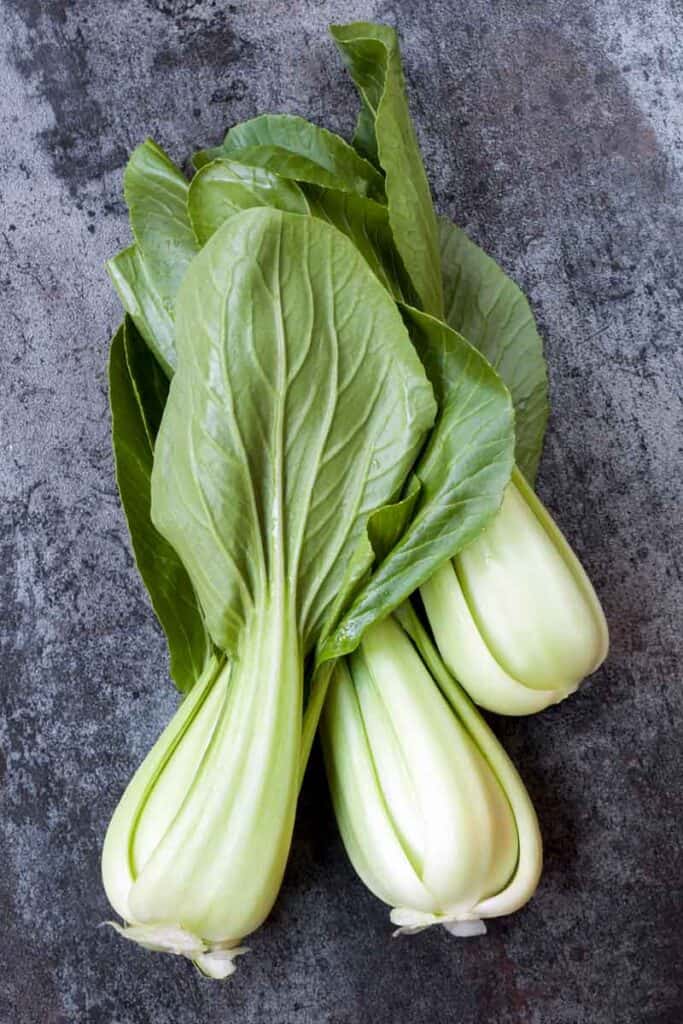
Depending on how you plan to cook with bok choy, your bok choy substitute will vary. Therefore, you might come across different applications of bok choy and its substitutes in Vietnamese, Cantonese, Thai or Chinese cuisines. Regardless, it's a fun ingredient and so don't be afraid to cook with it.
top products for bok choy recipes
Here is a list of the top products which will help you make recipes calling for bok choy and other related ingredients. Just take a look below and let me know if you agree:
- air fryer - combine bok choy with air fried salmon and you'll fall in love with this combination forever.
- Asian bamboo steamer - makes excellent steamed vegetables as well as dumplings. Try this dumplings recipe.
- set of knives - whenever I make stir fry, I find it's always a good idea to have high quality knives. The better the knife, the less of a risk you have of cutting yourself.
- wok pan - a wok pan is an essential cooking item when it comes to stir fries like this one.
- chopping board - for larger vegetables such as cabbage, it's best to have a larger chopping board.
- reusable chopsticks - to truly enjoy an Asian recipe, you'll need chopsticks.
Is there another type of item you look to prepare Asian recipes with that I haven't mentioned above? Do let me know in the comments section below on what's your go-to kitchen item for Asian recipes. I'd love to know!
what is bok choy?
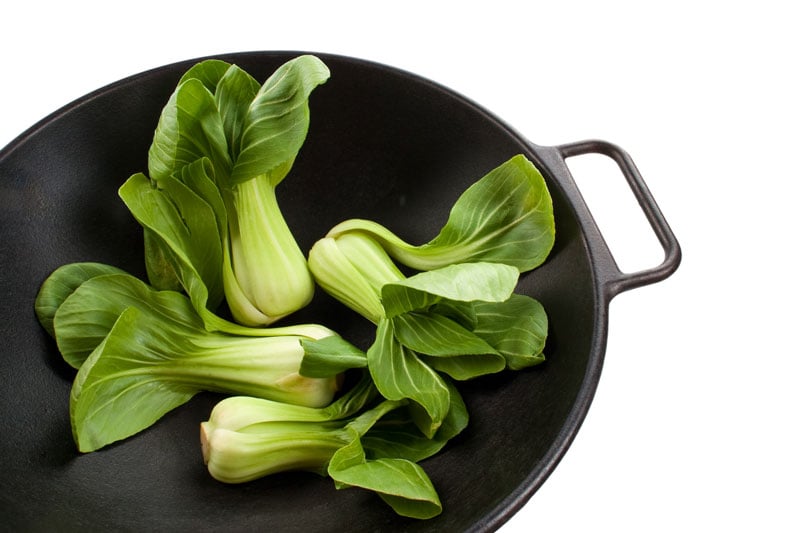
Bok choy, also known as pok choi, pak choy, or pak choi is a Chinese variety of cabbage. Think of it as Chinese cabbage. Its scientific name is brassica rapa, however the term brassica rapa is not commercially used.
Sometimes, it is also referred to as Chinese chard, celery mustard, Chinese mustard, or spoon cabbage. Any of these ring a bell?
In any case, bok choy in Cantonese translates to white vegetable.
The main difference between ordinary cabbage and Chinese cabbage varieties is that they don't form heads. On the contrary, they have green leafs and considerably smaller bulbs. Visually, bok choy resembles mustard greens.
In total, there are two main types of bok choy. First, there is the Chinese bok choy, which is more expensive and has dark colored leaves. Moreover, it has a crisp texture that's perfect for recipes in Asian cuisine.
In contrast, the second type of bok choy – Shanghai bok choy, is mostly available in international markets. For instance, it's widely available in the USA.
The texture of the Shanghai bok choy is less crisp compared to the Chinese bok choy. Visually, it is also lighter in color.
If you plan to cook an Asian recipe, I recommend going for the Chinese bok choy. Since bok choy reacts with heat, once you expose it, it will collapse. The Chinese bok choy is more firm, hence it will still retain a certain crispness.
Actually, there is a third type of bok choy, baby bok choy. This is a young version of the Shanghai bok choy and it's far more crisp and subtle in taste. In terms of taste, it's a lot sweeter.
You can even consume it raw. Just chop it up and toss it in a salad. There is nothing more satisfying than bok choy salad with an Asian dressing.
12 best bok choy substitutes
Here is a comprehensive list of bok choy substitutes. Which alternative will you pick for your recipe?
This is the closest substitute for bok choy. Napa cabbage, also known as Chinese cabbage. Napa cabbage also has green leaves, however it has a far rougher texture. In terms of flavor, it's far more delicate than ordinary cabbage. It's an excellent ingredient in kimchi recipes or in salads. If you haven't tried napa cabbage, you should!
Spinach is another excellent ingredient like bok choy, however only regarding the leaves. The leaves of bok choy taste very similar to that of baby spinach. Remember, if you cook the green leaves as well as the spinach, the leaves will collapse.
Ordinary cabbage is an excellent overall substitute. However, keep in mind that the flavor is more intense (hint of peppiness) and the texture is firmer.
Treat red cabbage in the same way as white cabbage. Both are worthy substitutes.
Nan ling is Chinese celery. You might also know it as kuen chai, qin cai, kinchay, kun choy, or kintsai. This Chinese celery, visually speaking, looks like coriander / cilantro leaves. However, in terms of taste, it's quite similar to a cross between celery and bok choy.
It's a very common ingredient in Asia, so you'll find it in many Chinese dishes.
Swiss chard has more leaves and larger stalks. In additional, swiss chard comes in a red color and is often confused with beet leaves. They make a very agreeable bok choy substitute.
Swiss chard can be substituted in salads. However, you can also treat the swiss chard similarly to bok choy when you pan fry it.
Related to kale and cabbage, they are a leafy vegetable. Substitute for bok choy in recipes which call for braising or frying, like stir fries.
The Chinese mustard greens, with a similar taste to broccoli. Be careful of the bitter aftertaste. Some people find it overwhelming!
Known as yu choy or choy sum, this is widely regarded as being Chinese broccoli. Yu choy carries a very delicate taste. Moreover, yu choy is far more delicate than gai lan. Substitute the yu choy for baby bok choy.
Use this substitute as a last resort. You can also try these celery root substitutes.
A species of greens with very similar textures to spinach and swiss chards. Consume the stalks and the leaves raw. Use as a topping substitute or in salads only.
Pea shoots are an excellent substitute. Especially when you are looking to substitute baby bok choy. Remember, baby bok choy is a lot sweeter and has that crispness about it. These pea shoots from sugar snap peas are the best alternative as regards texture and taste.
Just use the green leaves. It's best to consume the pea shoots raw as a topping for soups or other Asian recipes. Try it as a topping for this Chinese chicken and sweetcorn soup.
what does bok choy taste like?
Bok choy tastes very similar to cabbage. However, it is less firm and more juicy than cabbage. In addition, it is lighter in the overall bite.
Would you like to save this?
For those who are familiar with water chestnuts, you'll find that the latter tastes almost identical. Especially when it comes to eating the bulbs of the bok choy.
The taste of the leaves however is very similar to that of spinach. Spinach has a sharp, bitter, peppery taste, whereas the bok choy can carry a subtle, bitter flavor, without that sharp pepperiness.
how to cook with bok choy?
In essence there are a few ways you can cook with bok choy. Take a look at this list below:
- Add into a stir fry like this Chinese mixed vegetable stir fry.
- Braise it and serve it with a piece of meat or fish. It pairs excellently with pan-fried or baked salmon.
- Pan fry it and serve it with fish or meat. Try combining the bok choy with these delicious salmon fish cakes. Nevertheless, I love frying bok choy on oil with garlic and a hint of lemon. To me, it's the ultimate flavor combination.
- Add it into a soup like this Chinese ABC soup.
- Eat it raw. Perfect. You can toss it into this 4 bean salad to give it a crispy texture.
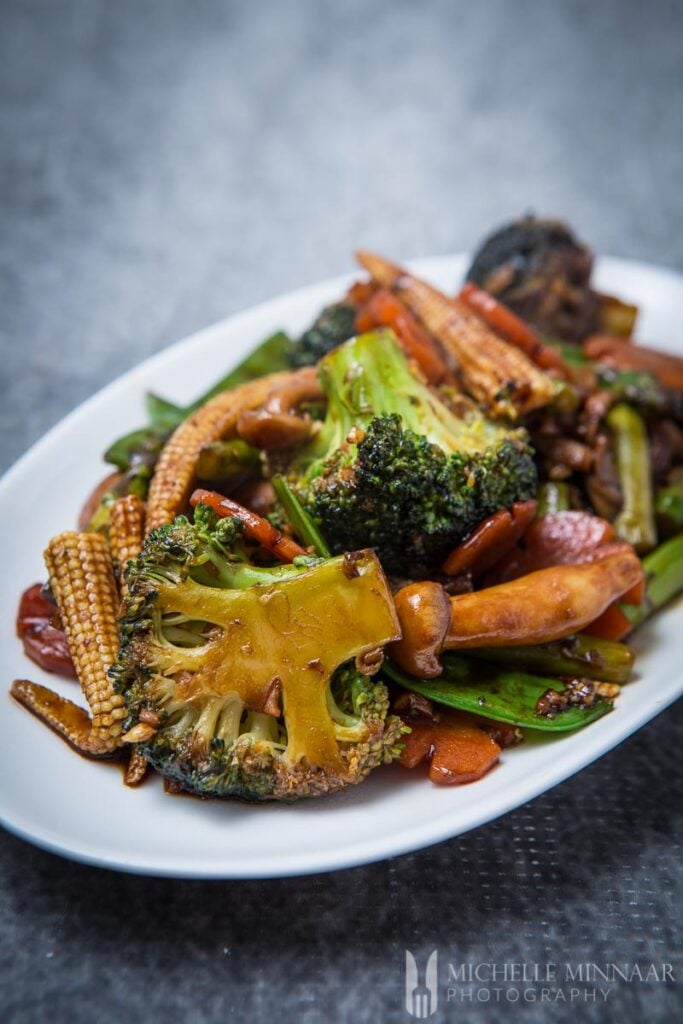
bok choy nutrition
Bok choy has a lot of nutritional value. Bok choy, when raw, contains over 95% of water. Nevertheless, it is a great source of Vitamin C, A, K, B6, calcium, and folate.
In terms of health benefits, the above mentioned vitamins and minerals have powerful antioxidant properties, which help regenerate your cells and protect them.
In addition, bok choy contains few calories and carbohydrates. Therefore, it's an excellent ingredient to cook with, if you're looking for a slimming recipe. It's no surprise that most Asians maintain such a healthy lifestyle by regularly eating ingredients like these.
how to store bok choy?
Due to the fact that bok choy is quite a perishable ingredient, it is recommended that you consume as soon as possible.
Place the vegetable in a plastic bag or in a storage container, and place it in the fridge. The leaves will wilt within a week. The leaves will shrink, dehydrate and turn a yellow brownish color.
If this happens to you overnight without you having noticed the first signs of wilting, not to worry. You can still use the bulbs. Simply cut off the leaves.
I recommend using the remaining bulbs in a stir fry or wok. Don't consume it raw as the bulbs may have become bitter.
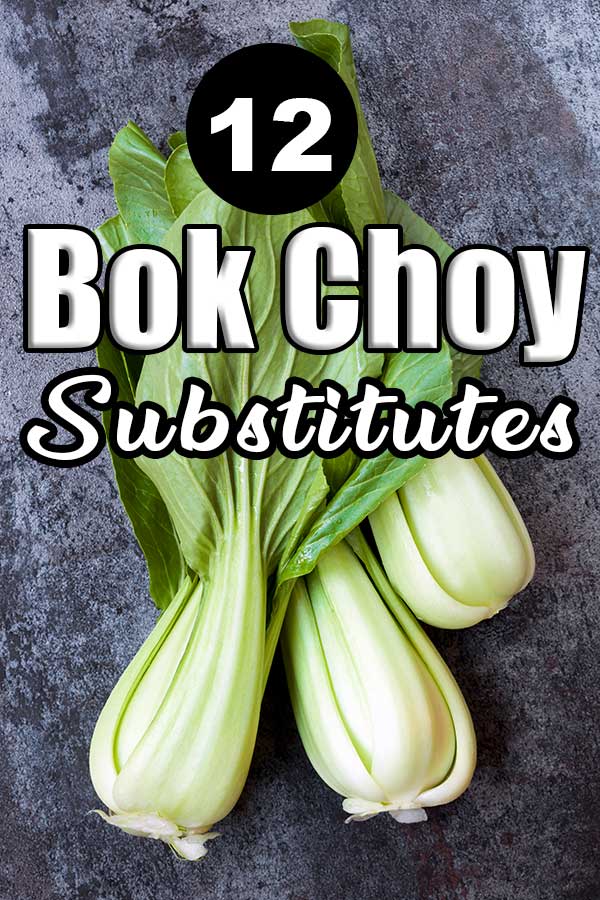
can you freeze bok choy?
Yes, you can freeze bok choy. Chop the bok choy into smaller pieces and place the pieces into a freezer bag or a storage container. Remove the leaves from the stems and the bulbs. The bulbs freeze the best.
If you freeze the green leaves, they will wilt during the thawing process.
In addition, you can freeze baby bok choy whole.
Freeze up to 3 months.
Which substitute for bok choy did you need to use? Do you have another one which you like to use? Let me know in the comments section below.

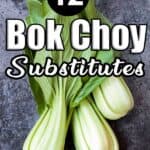
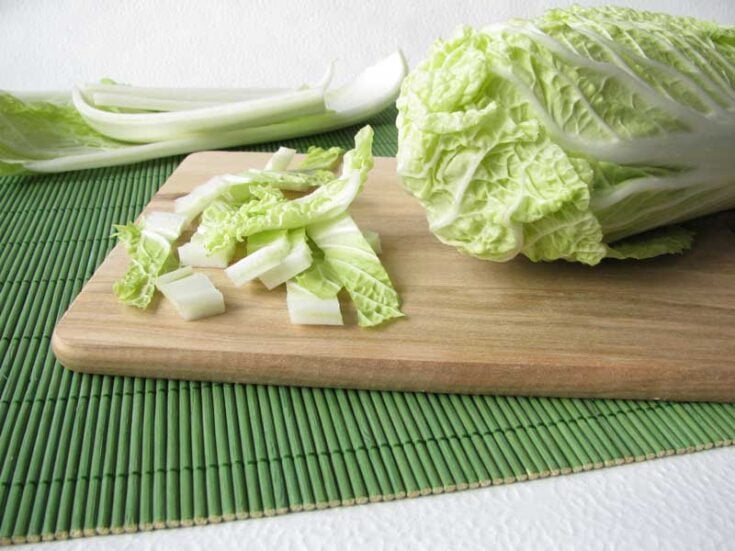
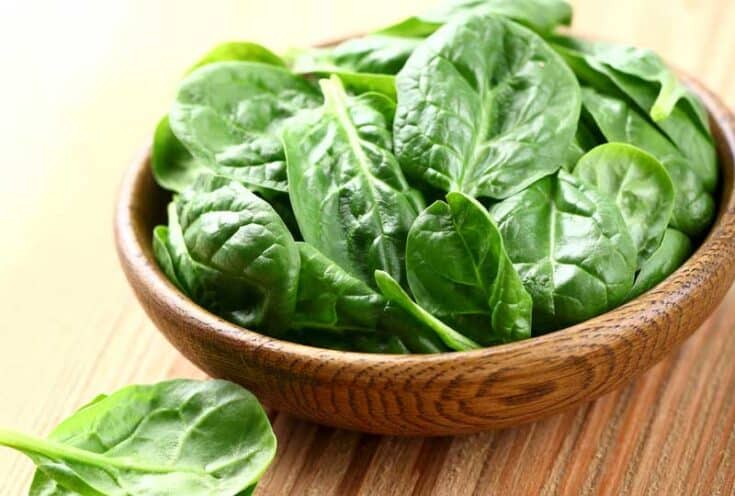
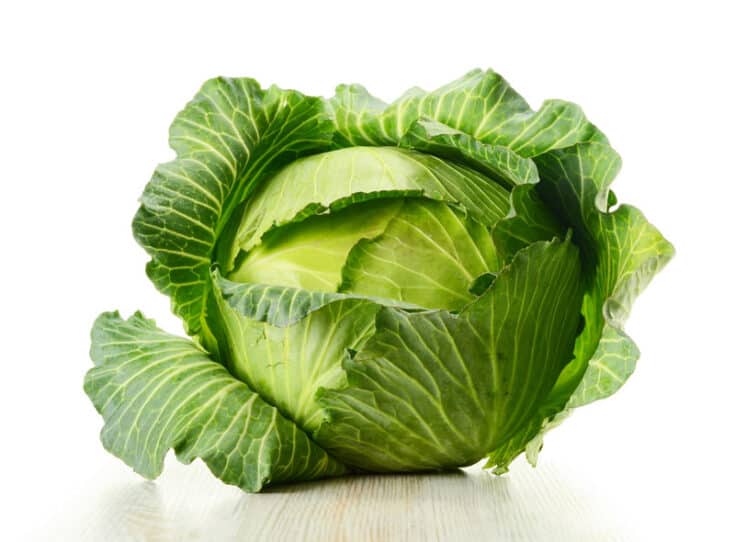
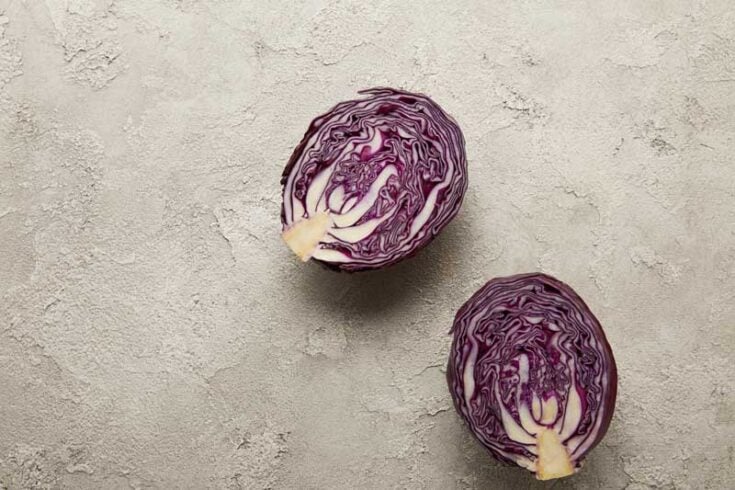
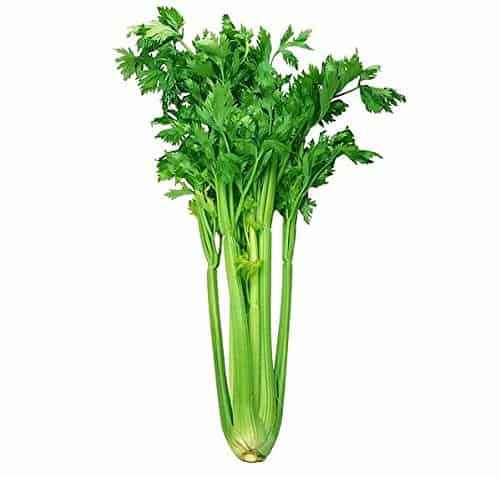
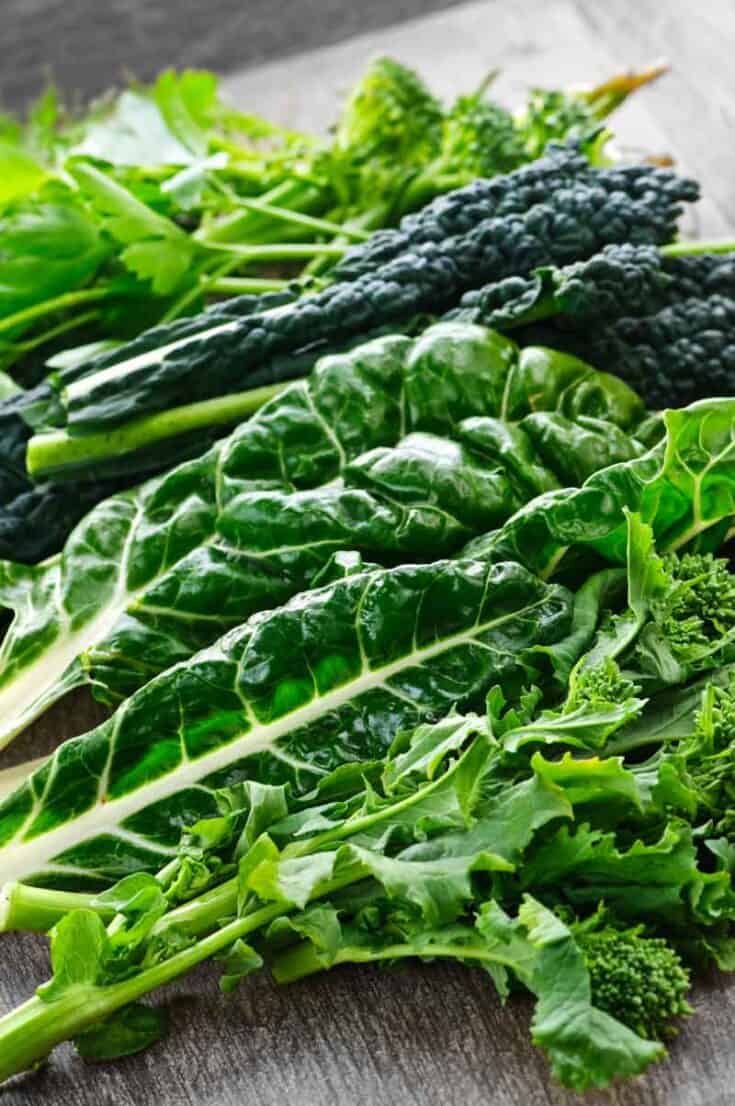
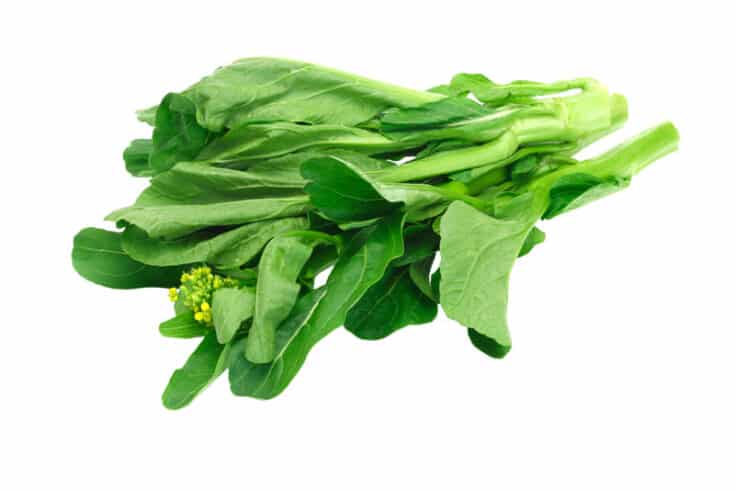
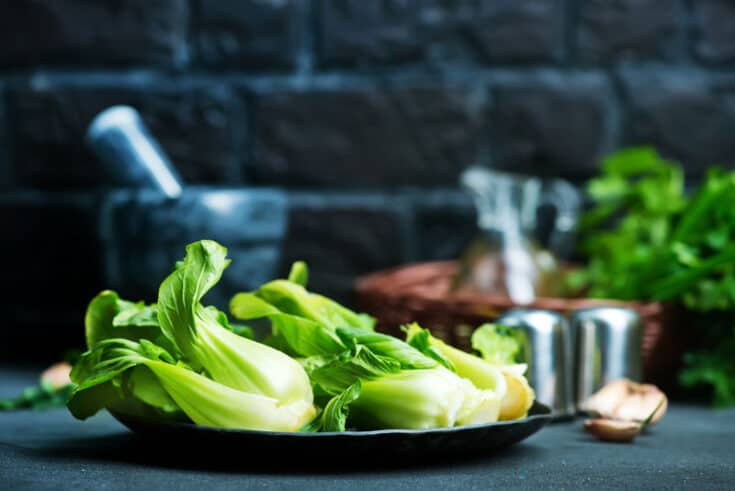
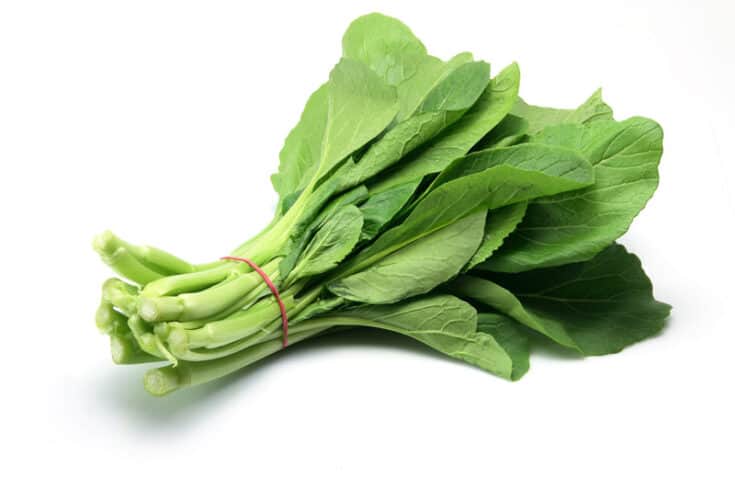
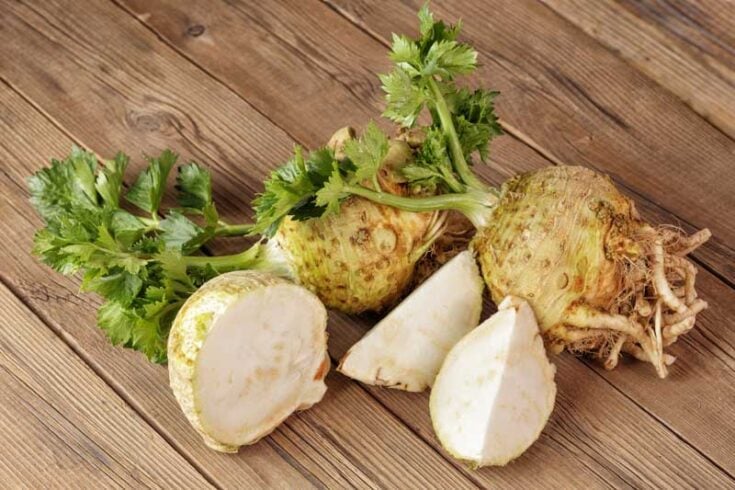
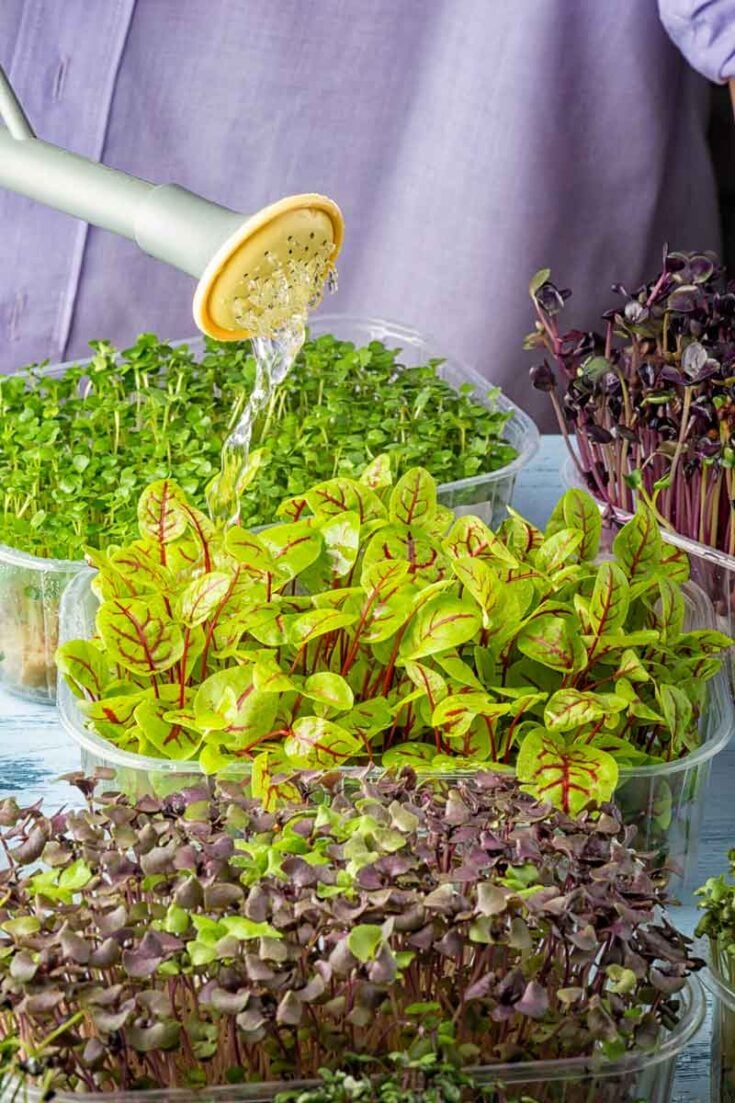
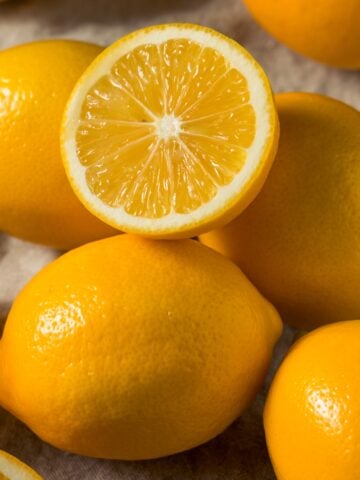
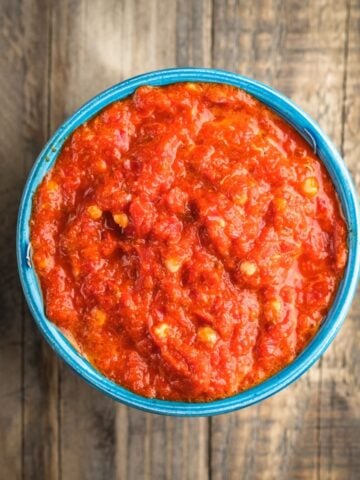
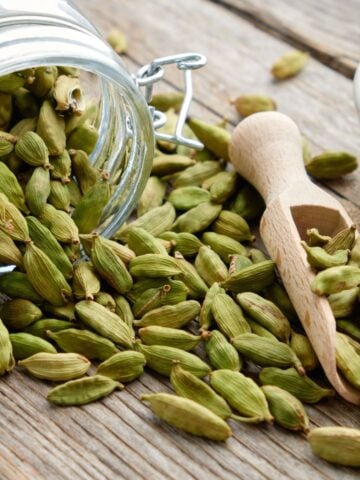
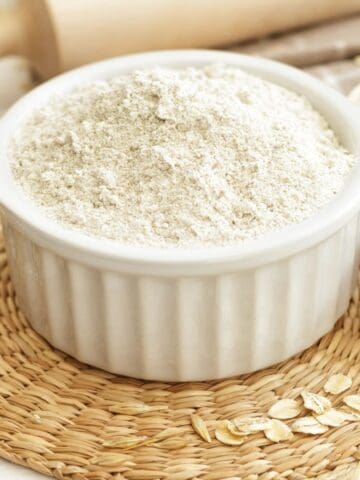
Make my day! - Share your thoughts...